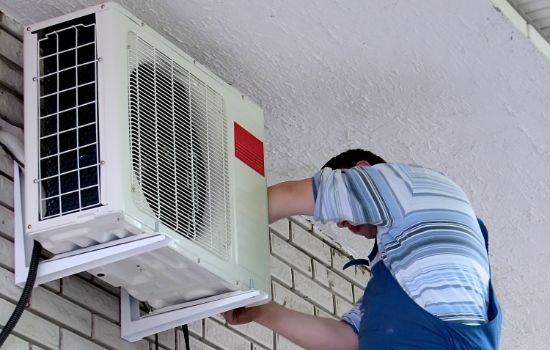DIY HVAC Maintenance: When is it best Try and When to Contact a Pro

Regarding residential comfort, not many systems are as crucial as your HVAC setup. Understanding what HVAC is can be the initial step towards ensuring a comfortable home environment year-round. Whether you encounter the chilly winters or the sweltering summer heat, having a dependable heating and cooling system is essential for preserving an comfortable indoor atmosphere. In this article, we will dive into everything you need to know about HVAC systems, from their fundamental roles to frequent problems that might arise and how to properly deal with them.
Many homeowners might consider to address HVAC repairs on their own, particularly when confronted with small issues or regular maintenance needs. However, discerning when to make a DIY attempt and when to seek the assistance of a professional can save you both time and expenses. We will explore some of the most frequent HVAC issues, offer advice on maintaining your system's efficiency, and underscore the importance of qualified help in certain situations. Ultimately, this guide, you will be more assured in managing your HVAC system while knowing when to call in the specialists.

Comprehending HVAC Systems
Heating, Ventilation, and Air Conditioning is an acronym for a system that includes heating, ventilation, and air conditioning, and it plays a key role in ensuring indoor comfort in houses and offices. These systems are designed to control temperature and air quality, ensuring that spaces remain pleasant no matter the outdoor conditions. A typical HVAC system typically includes elements such as a furnace for heating, an air conditioner for cooling, and a ventilation system to move air and improve indoor settings.
The working of these systems is based on the concepts of thermodynamics and airflow dynamics. Heating is performed through different methods, such as propane, electric power, or oil, while cooling is primarily executed through coolants circulating in the system. Air exchange ensures fresh air enters a space while removing stale air, which is essential for comfort and health. Understanding how these components work collaboratively can help individuals effectively manage their HVAC systems and spot potential issues early on.
Routine service and understanding of how to operate HVAC can lead to improved efficiency and longer lifespans. Easy actions such as changing air filters regularly, ensuring vents open, and arranging professional check-ups can significantly enhance system performance. By understanding the basics of heating and cooling, people can make smart decisions about their climate control needs, contributing to a more enjoyable and efficient living space.
Frequent Heating, Ventilation, and Air Conditioning Problems and Solutions
One of the more frequent issues homeowners experience is a shortage of heat or air conditioning. This issue can originate from different sources, such as a clogged air filter, which limits airflow and reduces the HVAC system's effectiveness. To resolve this, routinely inspect and replace air filters every two to three months, depending on usage frequency. Additionally, inspecting the thermostat settings and ensuring that the unit is set to the appropriate temperature can help alleviate the issue. If problems remain, it may be essential to look for for refrigerant leaks or reach out to a technician.
Another typical problem is unexpected noises produced by the HVAC system, such as clanging, whistling, or grating sounds. These noises can indicate loose parts, worn-out bearings, or problems with the compressor. Homeowners can start by fastening loose components and confirming that all access panels are securely in place. If the noises continue, it might be appropriate to consult an HVAC technician to diagnose and resolve any root mechanical issues.
In conclusion, inconsistent temperatures across the home can be a irritating problem. This can result from inadequate insulation, blocked vents, or problems with the ductwork. To improve airflow, make sure that vents are not obstructed by furniture or other obstacles. Fixing air conditioning service in ductwork can also support more uniform heating and cooling. For more severe airflow problems or ongoing discomfort, it may be advisable to consult a professional to evaluate and improve the overall HVAC system and home insulation.
Energy Efficiency and Care Guidelines
To boost the efficiency of your HVAC system, consider getting a digital thermostat. These gadgets allow you to program specific settings for various times of the day, maximizing energy use while ensuring comfort. For example, you can set your thermostat to lower heating or cooling when you are absent, thus reducing energy and lowering your utility bills.
Regular maintenance is essential for maintaining your HVAC system functioning efficiently. Schedule seasonal tune-ups to make sure that all components are in good working order. During these check-ups, professionals can clean coils, inspect ducts, and replace filters, which helps avoid larger issues down the line. Additionally, swap out your air filters every one to three months to maintain airflow and enhance indoor air quality, directly affecting the efficiency of your system.
Pay attention to your HVAC system's insulation and sealing. Make sure ducts are well-sealed to stop air leaks and think about adding insulation to locations such as the attic and walls to keep energy costs down. Enhancing your home’s insulation helps your HVAC system operate less strenuously to keep the desired temperature, which results in overall energy savings. Consistently inspect and maintain areas around your home to provide a comfortable and energy-efficient living environment.
